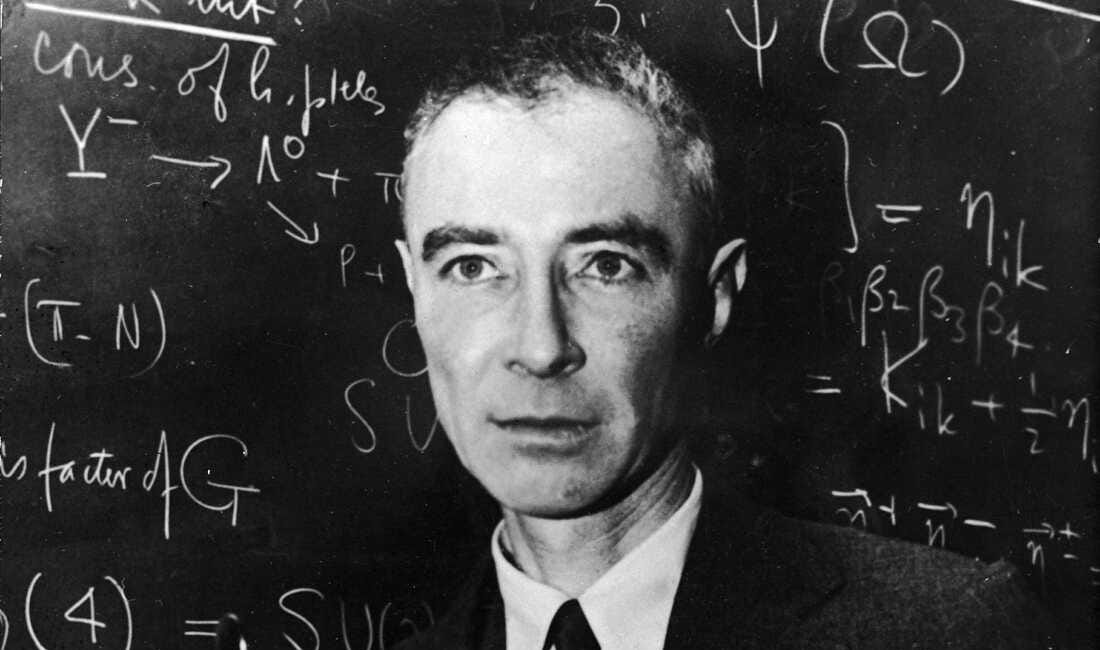Biography of a unique mind
Review of Genius: The Life and Science of Richard Feynman by James Gleick
Physicists in the last 150 years have taken center stage in science, technology, and even philosophy. We look to them for answers to the toughest questions, fear the consequences of their discoveries, and are fascinated with the way their minds work. They are the quintessential scientists – finding deeper levels of theoretical explanation that can be proven by experiment – and yet their ideas are getting farther and farther away from reality as ordinary people experience it. Richard Feynman, like Albert Einstein, was the superstar of his generation, a magician that can only be called “genius”. In this brilliant biography and intellectual history, we can study his methods, discoveries, and personality. It is a dazzling achievement.
Most of us know Feynman from his pop work, books of anecdotes, and personal appearances – he mixes brand (a somewhat mad scientist of genius), persona (skeptical seeker of truth) and meme (sayings such as “I was born not knowing and have only had a little time to change that here and there”). Far fewer understand his work in context and what it meant. Indeed, he doesn’t quite seem human. In spite of these challenges, Gleick does not shy from attempting to answer the really hard questions about Feynman, starting with his science.
I must confess that, even though I have a rudimentary understanding 20th Century physics, I was unable to fully comprehend what Gleick explains and evokes. Where my grounding was most solid, I hugely enjoyed Gleick’s descriptions of what Feynman contributed to them, such as his contribution to the Manhattan Project. However, how he revolutionized quantum mechanics, in particular with the Feynman diagrams that simplified our understanding of the interaction of light and electron behavior, remains beyond me in a fundamental sense. I do not view this as Gleick’s failure, but as a reflection of the level of the book, which is quite high. I will have to look elsewhere to better understand this and perhaps re-read these sections of the book.
Feynman’s character and education were fascinating and palpable. He had the brains, but his father also instilled a love of science in him at an early age. He was also lucky, in that his career began at a moment of crisis in a revolutionary science, quantum mechanics, which seemed at an impasse – too many of the equations resulted in absurdities (infinities) that made no sense and so were ignored or papered over. Heisenberg’s approach (from matrices of particles) appeared mathematically incompatible with Schrödinger’s wave-based equations, even if each successfully described the same phenomena. If I understood correctly, Feynman created a workable framework to incorporate both. Einstein’s gravitational theories also appeared incompatible with quantum mechanics, which Feynman partially integrated into his work. Finally, Gleick emphasizes the many dead ends that Feynman pursued, the unpleasant sides of his character, and the controversies he continually waded into, such as the sexism in Surely You’re Joking Mr. Feynman. Very balanced portrait.
Gleick covers the biographical tidbits of Feynman’s life, such as his first love that ended in tragedy, the nuts of bolts of his academic career, and the public persona he developed later on, after he won the Nobel Prize. From this, the biography morphs into a number of essays that are philosophical, i.e. on what genius is, on the nature of scientific inquiry, and on how much we can really know. While brilliantly expressed in Gleick’s unique writing style, they are uneven. To his credit, Gleick avoids psychologizing to a great extent, but many of Feynman’s judgments appeared superficial to me, such as his blanket dismissal of the social sciences. He might have known a lot about quantum physics, but that doesn’t mean he understood government, politics, or society.
This is a great and difficult read, an intellectual adventure at a very high and demanding level. I am sure I will have to re-read when I am better prepared.
Related:
The Manhattan Project, from scientific discovery to detonation
This book has it all: fascinating personalities, fundamental scientific discoveries explained with clarity, and the birth of political issues that are as relevant today as they were 80 years ago. That it is almost certainly the best book on the development of the atomic bomb is in itself remarkable, as the field is already overcrowded. Rhodes makes an e…
Celebrity intellectual, doer, and political martyr
It is rare to read a biography so rich in detail, so clear in ideas, and so beautifully written that it can be counted as literature. Oppenheimer is a unique figure in American history: starting as an academic, he became a master administrator for one of the most important technological breakthroughs in the history of mankind – harnessing the atom – and…






